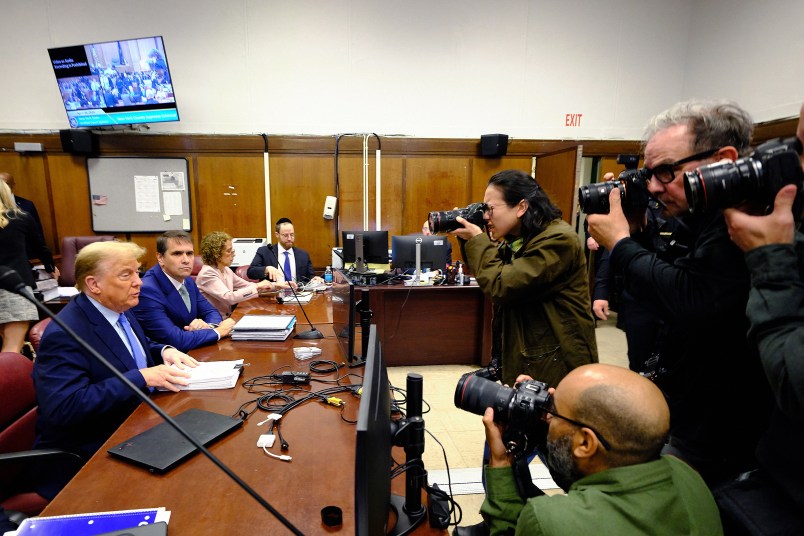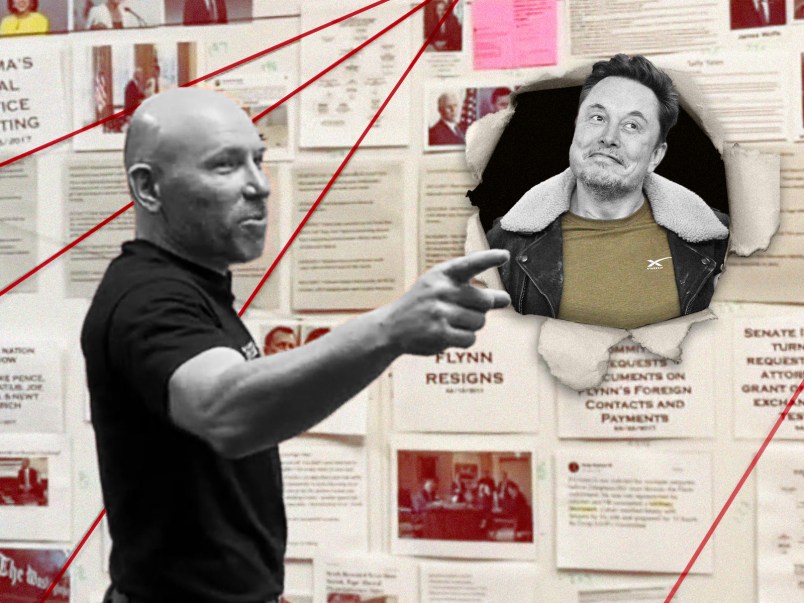The Justice Department just sent reporters excerpts from Attorney General Eric Holder’s prepared remarks for his testimony tomorrow at a House Oversight Committee hearing on ATF’s flawed Operation Fast And Furious.
Holder’s remarks include a slight dig at Oversight Committee Chairman Darrell Issa (R-CA), who has gone as far as to threaten to hold the Holder in contempt over the committee’s investigation.
Holder notes that Thursday’s hearing will the the sixth time he’s testified about the matter before a congressional committee.
Fast and Furious was an operation based our of Arizona in which ATF agents told cooperating gun shop owners to go forward with sales of weapons even if they suspected the person they were selling them to was a “straw purchaser” buying the weapons for someone else. Many of the guns ended up crossing the border into Mexico and two weapons ended up at the scene of the murder of a Border Patrol agent.
Excepts of Holder’s testimony released by DOJ:
Today, I’d like to discuss some of these improvements in specific terms – and outline the steps that we have taken to ensure that the flawed tactics used in Operation Fast and Furious – and in earlier operations under the prior Administration – are never again used.
If some of my comments today sound familiar, it is because this marks the sixth time I have answered questions about this operation before a congressional committee in the last year. Let me start, however, with something that cannot be said often enough: allowing guns to “walk” – whether in this Administration or in the prior one – is wholly unacceptable. This tactic of not interdicting weapons, despite having the ability and legal authority to do so, appears to have been adopted in a misguided effort to stem the alarming number of illegal firearms that are trafficked each year from the United States to Mexico. To be sure, stopping this dangerous flow of weapons is a laudable – and critical – goal. But attempting to achieve it by using such inappropriate tactics is neither acceptable nor excusable.
That’s why, when I learned early last year about the allegations raised by ATF agents involved with Fast and Furious, I took action. In addition to requesting an Inspector General investigation last February, I ordered that a directive be sent prohibiting the use of such tactics. There also have been important personnel changes in the Department. And vital reforms reflecting the lessons we have learned from Operation Fast and Furious have been implemented.
Today, I reaffirm my commitment to ensuring that these flawed tactics are never used again. And I reiterate my willingness to work with Congress to address the public safety and national security crisis along our southwest border that has taken far too many lives.
…. I know the Committee also is keenly interested in policy changes that the Department has undertaken in the wake of Operation Fast and Furious. The ATF, which is now under the leadership of Acting Director Todd Jones, has implemented a number of key reforms and critical oversight procedures to prevent such a flawed operation from occurring again.
These reforms include: clarifying current firearms transfer policies to more effectively prevent the criminal acquisition, trafficking, or misuse of firearms; implementing a new Monitored Case Program designed to facilitate closer coordination on sensitive investigations between ATF field and headquarters personnel; revising policies regarding the use of confidential informants to, among other things, prevent using Federal Firearms Licensees as paid informants except in limited circumstances; and reinforcing the importance of deconfliction and information sharing so law enforcement agencies can investigate subjects more effectively.…. Congress has sought answers to questions about law enforcement Operations Wide Receiver and Fast and Furious. And my colleagues and I at the Department of Justice have worked diligently to provide those answers. In addition to my frequent testimony before Congress, I have answered – and am continuing to answer – questions that have been submitted for the record during previous hearings. The Department also has responded to more than three dozen letters from members of Congress and facilitated numerous witness interviews. We also have submitted or made available for review more than 6,400 pages of documents to congressional investigators. This has been a significant undertaking for Department employees – and our efforts in this regard remain ongoing.
We also have provided Congress with virtually unprecedented access to internal deliberative documents to show how inaccurate information was initially conveyed in a letter sent to Senator Grassley on February 4, 2011. These documents show that Department officials relied on information provided by supervisors from the relevant components in the best position to know the facts. We now know that some of the information they provided was inaccurate. We also understand that, in subsequent interviews with congressional investigators, these supervisors have stated that they did not know at the time that the information they provided was inaccurate.
In producing internal communications regarding the drafting of the February 4th letter, the Department made a rare, limited exception to longstanding Executive Branch policy. This decision reflected unusual circumstances and allowed us to respond, in the most comprehensive way possible, to congressional concerns where the Department itself concluded that information in the letter was inaccurate. The documents we produced have answered the question of how that letter came to be drafted and put to rest questions about any intentional effort to mislead. All of our communications to Congress should be accurate and that is the standard I expect the Department to meet. At my direction, the Deputy Attorney General has instituted new procedures to increase safeguards in this area.Prior administrations have recognized that robust internal communications would be chilled, and the Executive Branch’s ability to respond to oversight requests thereby impeded, if our internal communications concerning our responses to congressional oversight were disclosed to Congress. For both Branches, this would be an undesirable outcome. The appropriate functioning of the separation of powers requires that Executive Branch officials have the ability to communicate confidentially as they discuss how to respond to inquiries from Congress.
… In this new year, I hope we can work together to provide law enforcement agents with the tools they desperately need – and have requested – to protect our citizens and ensure their own safety. Indeed, incidents of violence against law enforcement officers are approaching the highest levels we’ve seen in nearly two decades, even though violent crime is down overall. Last year, a total of 177 federal, state, and local officers lost their lives in the line of duty – a 16 percent increase over 2010. More than 70 of these deaths involved firearms – 20 percent more than the previous year. And, since the beginning of this year, an additional 14 officers have been killed – half of them in gun-related incidents.
That is unacceptable. The Justice Department is committed to turning back this rising tide, and to protecting those who serve on the front lines. We’ve designed and implemented a comprehensive new training initiative to provide law enforcement leaders with the information, analysis, and cutting-edge tools they need to respond to a range of threats – including ambush-style assaults. We’ve developed and distributed 8,000 Officer Safety Toolkits, and have partnered with public safety professionals at every level to make sure our officers have the communications platforms necessary to share information more quickly – and to more effectively identify and combat threats. And we’ve built a robust network of relationships – between state, local, and tribal authorities; key federal partners; private sector stakeholders; and Cabinet-level agencies – to explore new strategies, invest in critical research, and ensure that this vital work remains a top priority. Let me be clear: nothing is more important than ensuring the safety of the brave law enforcement professionals who put their lives at risk for us each and every day.But we can’t make the progress we need – and that our law enforcement partners deserve – without your assistance and your leadership. As I have said before, I am determined to ensure that our shared concerns about these flawed law enforcement operations lead to more than worn-out Washington “gotcha” games and cynical finger pointing. The Department of Justice stands ready to work with you – not only to correct the mistakes of the past, but also to strengthen our law enforcement capacity in the future.








